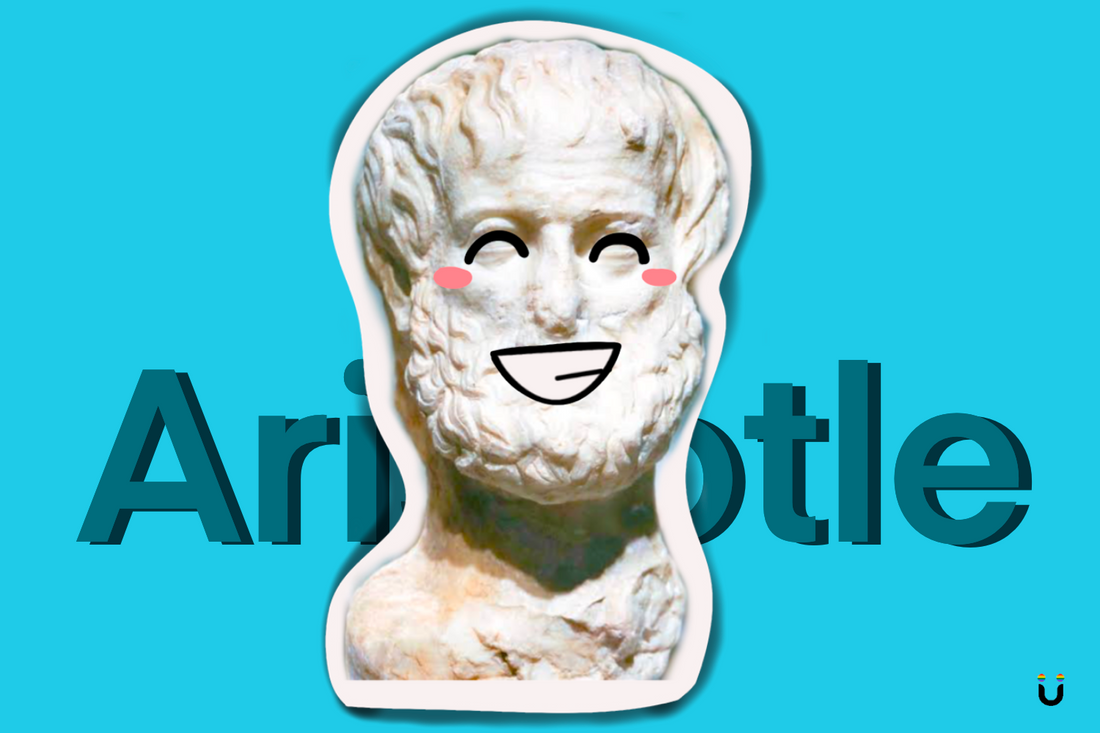In a world obsessed with the elusive pursuit of being perpetually happy, we often forget that happiness is just another emotion, as transient as your crush on that new Netflix series. And yes, it has been equally commercialized and capitalized, but that's a topic for another day.
Aristotle, the OG philosopher, defined happiness as "eudaemonia," which essentially means having a good spirit. In other words, it's all about living your best life. He laid down ten virtues in his "Nicomachean Ethics," and - since absolutely no one reads anymore - we'll skim through three that come with the bonus of scientific backing.
- Courage: It's like that classic battle of desire vs. duty that keeps us awake at night. You know the one: should I follow my passion or stick to the sensible path? This internal tug-of-war often leaves us tangled in a web of anxiety and fear. But what's the secret sauce to follow your heart? Courage, my friend. The courage to make that decision and the courage to embrace the potential fallout.
Disclaimer: This isn't hardcore science; it's more like a pattern we've noticed in our therapy sessions. And guess what? Most folks, especially the gents, grapple with courage. Blame it on the fear of authority, the good son syndrome, and all that jazz. But stepping out of the "do the right thing" box with acceptance of the possible repercussions is often - major spoiler alert here - the key to happiness.
- Temperance (Control): Ah, patience (or resisting the urge to triple-text your Bumble date) is not the most enticing prospect, is it? It's much more tempting to let emotions run wild, especially during those sleepless nights (or while waiting for a reply). Quick responses and impulsive actions tend to rule the roost, am I right? But trust us, a bit of self-control can do wonders. Research suggests that not acting on every impulse is actually a very good thing.
Remember the rule: if it feels good, think it through, weigh it on the sanity scale, and decide. Surprisingly, the more self-control you exhibit, the less negativity you feel, and that happiness meter starts ticking up. In fact, it hits the highest when self-control is at its peak.
- Forgiveness: Admit it; you probably don't know how to genuinely forgive either, and that's perfectly okay. Aristotle's take on forgiveness is all about considering others, showing some empathy, and letting go of grudges. And guess what? Science backs him up on this one too. Most studies on forgiveness reveal lower levels of depression and anxiety. So, even if you can't exactly master the art of forgiveness, just cut yourself some slack, try to see things from the other person's perspective, and watch those happiness points go up.
In the end, happiness might be as elusive as the pot of gold at the end of the rainbow, but Aristotle gives us a few clues on how to chase it. So, why not try a dash of courage, a sprinkle of self-control, and a pinch of forgiveness? Who knows, you might just find yourself on the path to that 'good spirit' Aristotle was talking about.
And hey, if all else fails, remember, a little humor can go a long way in therapy!


